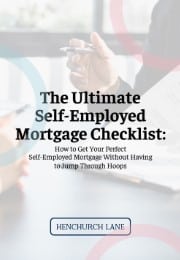First Time Buyer
- Friendly expert mortgage advisers
- We work with dozens of lenders
- Access to competitive rates
Home » Mortgage Broker Kent » First Time Buyer

First Time Buyer Mortgages
Paul Holland sits down and explains everything First Time Buyer mortgages.
How is the mortgage process different for First Time Buyers?
It’s not massively different in terms of the mortgage process. One of the main differences is that generally First Time Buyers by definition, won’t have a property to sell, therefore they are no chain buyers. This puts them in a stronger position than somebody who’s looking to sell a property.
What is an Agreement in Principle?
An Agreement in Principle, a Mortgage in Principle or a Decision in Principle are all the same thing, depending on the mortgage broker or agent you speak to. If it finishes with the word ‘principle’ it’s a promise, generally speaking.
In this case, you’ve approached a lender and asked them if you were to want to buy a property, would they lend to you, and how much. On a very hypothetical basis, they tell you how much your maximum loan would be. It then gives you confidence that you’re viewing at the right purchase price, and that there’s likely to be an acceptance.
How much can a First Time Buyer borrow and what deposit is needed?
A First Time Buyer can borrow as much as their financial situation dictates. There might be some small restrictions, for example, the multiples that are applied to their income scenario might be slightly less than for someone that already owns.
With regards to the deposit that is needed for a First Time Buyer, generally speaking across the mortgage market at the moment, the minimum deposit required for a conventional mortgage is 5% of the purchase price.
How do I know what my credit score is and how do I improve it?
There are multiple different platforms from a credit referencing agency point of view, some common names such as Experian, Equifax and Clear Score, allow you to input your general data and they will provide you with a score. Your score will depend on your recorded history over the last six years, and it will collate all of the data from the various accounts and agreements you’ve got with different providers and lenders.
This will just tell lenders whether or not you stuck to the agreements, or if you fell outside, if you had one missed payment a couple of years ago, which wouldn’t be too much cause for concern, or if you have frequently missed payments, with six or seven consecutive payments it will be viewed much more severely.
In these circumstances you are likely to need to improve your score. First of all, try to rectify any mistakes, pay outstanding payments, and maintain up-to-date payments going forwards. Spend as little as you can on credit cards with limits, as the more of the limit you utilise, the worse your credit score will be. You should also make sure you’re on the electoral roll at the correct address.
What help is available for First Time Buyers?
There are schemes that are available for First Time Buyers exclusively, and there are schemes that are available to everyone, including First Time Buyers. The main one that’s exclusive to First Time Buyers is a Help to Buy scheme through the government. It allows a First Time Buyer to buy a property with as little as 5% deposit.
The government will lend you up to 20% of the value of the property on an equity loan, which is interest-free for five years, and you only need to secure the remaining 75% with a mortgage. Securing a much lower Loan to Value mortgage has lower repayments, as well as a much lower interest rate.
Another option, which is available to everyone, is Shared Ownership. This is where, instead of buying 100% of the property, properties that have the shared ownership scheme attached allow you to buy 50%, and the remaining 50% is owned by a third party, usually a housing association, who you would pay rent to. Ultimately your mortgage would be half the size, and these kinds of schemes really tend to help out people with smaller incomes or individual incomes, buying as a single applicant.
A Joint Borrower Sole Proprietor mortgage allows you to purchase a property with another relative on the mortgage application who isn’t on the mortgage deed.The other person’s income can then be utilised towards the affordability, if you don’t earn enough independently. They wouldn’t, however, be on the mortgage deed or live in the property. This is much more complex than a conventional mortgage, however, and something that a good broker would highlight to you if it could potentially help you out.
What fees are involved when buying a first house?
One thing that we do on the initial chat with clients, is highlight the fees and the costs, as well as anything that they might not be aware of, as a First Time Buyer. The costs that you’ll incur as a First Time Buyer will be solicitor fees, stamp duty, although the good news for First Time Buyers is that they won’t pay stamp duty on properties up to £300,000.
On completion of purchase, from a mortgage perspective, the lender might charge a valuation fee to inspect the property and a mortgage product fee, or arrangement fee. Depending on which broker you use, you could also be charged a fee. The bulk of the costs for a property transaction purchase will tend to be towards the end of the purchase.
First Time Buyer mortgage tips
The key factor for First Time Buyers is preparation. Download a credit report to see if there’s anything you can make improvements on. Speak to somebody in advance to help you prepare, such as a mortgage broker.
Your property may be repossessed if you do not keep up with your mortgage repayments.
Why Us?
- Friendly, expert mortgage advisers
- We work with dozens of lenders
- Access to competitive rates

